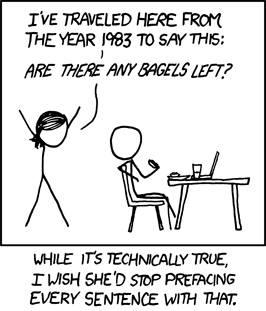Google Demotes Literary Stars
My post about Google's metadata problems, along with a similar piece in the Chronicle of Higher Education, got a lot of people talking about the problem in the press and the blogs. (I even ran into an allusion to it in a La Repubblica piece on the Google Book Settlement when I arrived in Rome yesterday morning.) A number of people passed along their own experiences with flaky metadata. Others criticized me on grounds that could be broadly summed up as "Don't look a gift horse in the server," "It's better than nothing," "Who needs metadata anyway?," "Just give them time," and "Why concentrate on trivialities like metadata while ignoring the real perils of corporate monopoly" (as in "serving as a consultant for monitoring the proper temperatures of the pitchforks in hell").
This is all to the good, if it helps move up the metadata issues in Google's queue. I do think this will get a lot better as Google puts its considerable mind to it. But there was one other aspect of the metadata problem which I hadn't noticed or even thought about, but which in its own small way was unkindest cut of all. It was noticed by the children's book author Ace Bauer, who was prompted by my account of the metadata problems to check his Google Books listing:
Turns out my review rating ranked only one star out of 5. That's dim. But see, the review upon which they based this ranking was Kirkus's. Kirkus loved the book. They gave it a star. One star. That's all they give folks. It's considered a major honor.
Indeed it is, and actually the falling-star glitch affects a number of writers, for example Roy Blount, Jr., the president of the Author's Guild, who is has been an enthusiastic backer of the settlement. Google Books assigns a one-out-of-five star rating to at least two of Blount's books on the basis of their starred Kirkus reviews, Crackers and First Hubby, and visits similar review rating downgrades on books by Guild vice-president Judy Blume and Guild board members Nick Lemann, James Glieck, Oscar Hijuelos, among others.
I don't know exactly what the Google people will say when they cotton to this one, but it's a good guess the first sentence will begin with "oy."
Read the rest of this entry »

